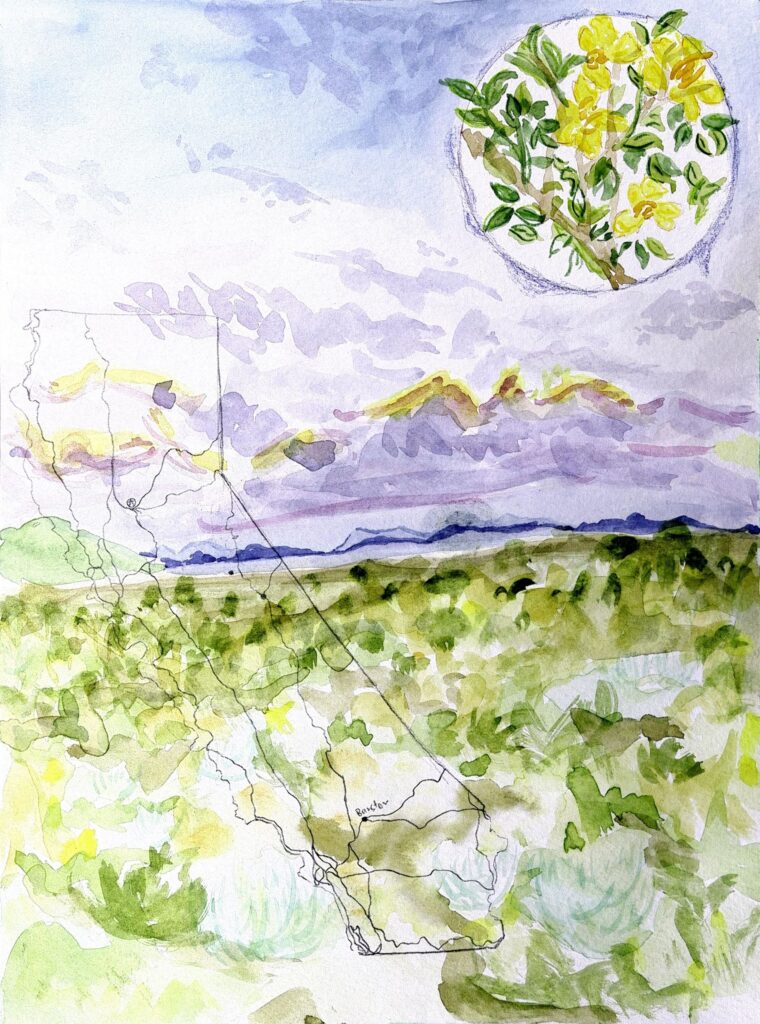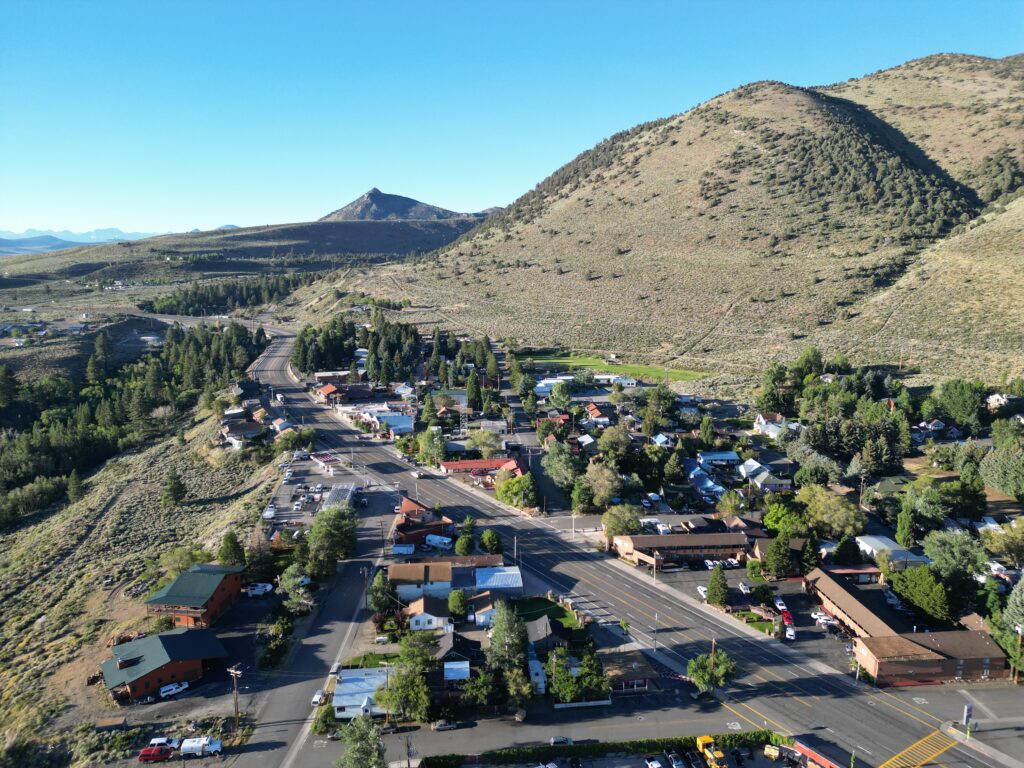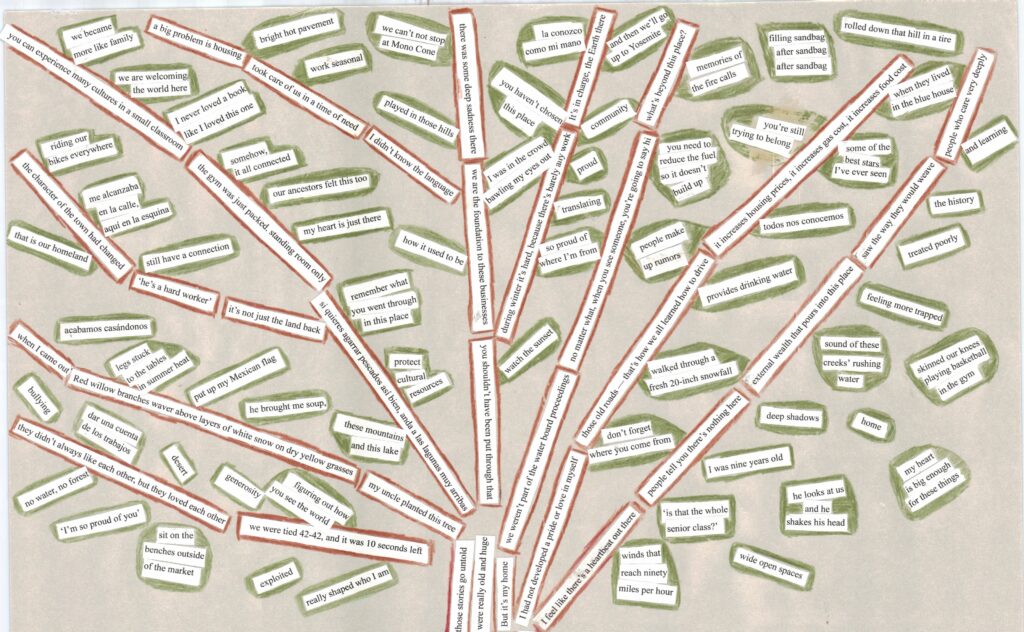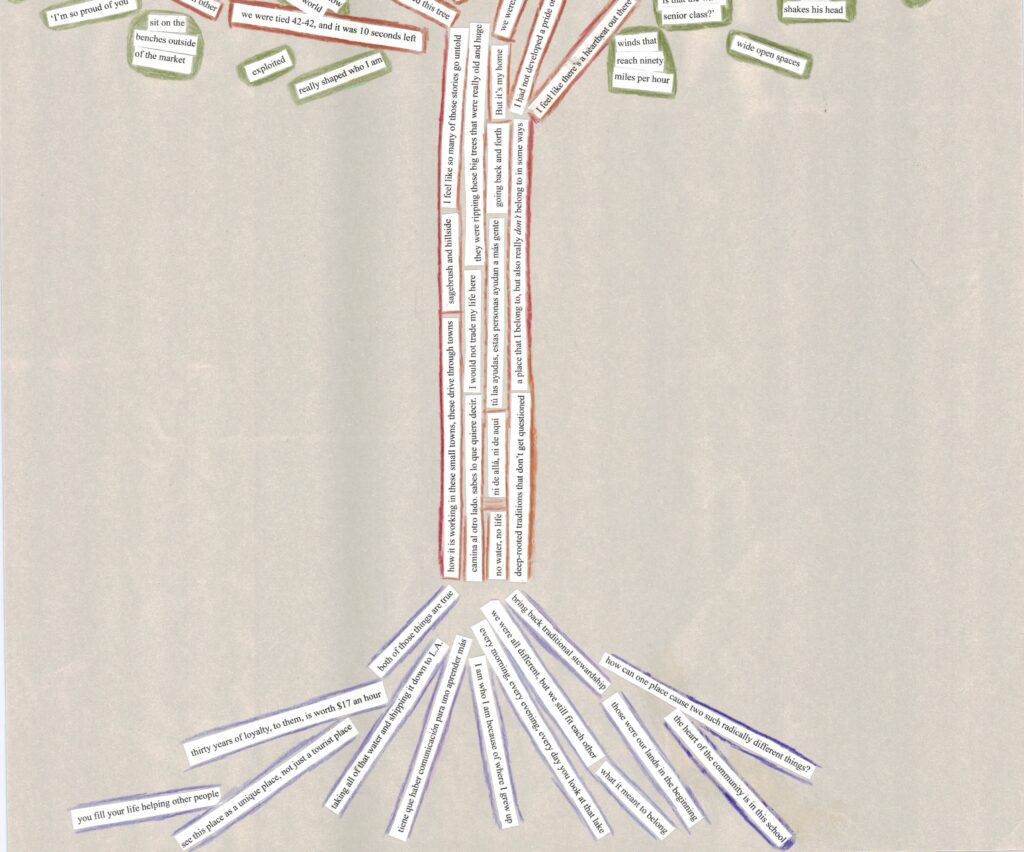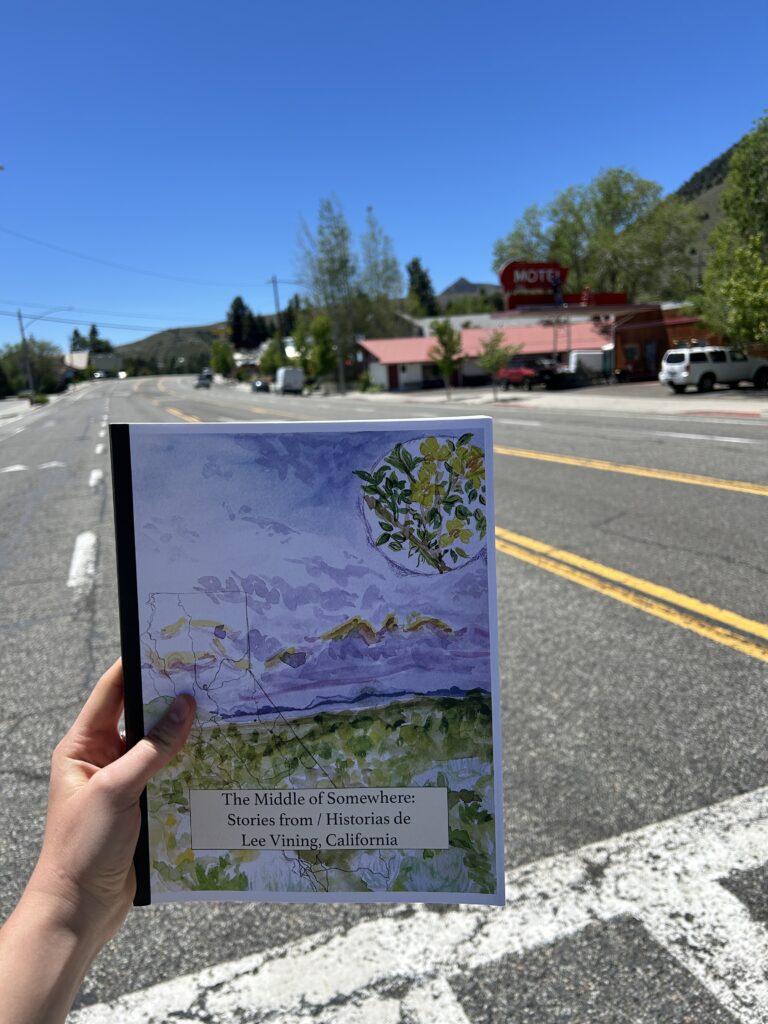The Middle of Somewhere: Stories from Lee Vining, California
Lee Vining and the Mono Basin have shaped my life in ways I have always been trying to find words for. It’s a place of paradoxes: cold that sticks your car door to its frame, and heat that shrivels up grass. Absolute silence so quiet you can hear it, and winds that reach ninety miles per hour and feel like they rattle your bones. Bright hot pavement that stretches forever, and deep shadows that swallow the town at the end of the day. A sky that stretches so wide above you that on some days it fills your heart and on other days feels like it might swallow you.
In my senior thesis project, I wanted to explore all these ideas by talking to people about them. I want to thank everyone who shared time, words, stories, and memories with me. Talking with you changed my life and my understanding of this place.
For the last two years, I’ve been recording now more than fifty hours of interviews with people who spoke about this place and what it has meant in their lives: stories about school, about ice cream at the market, about trying to change in a small town, about Indigenous traditional ecological knowledge, about labor rights, about love, about racial divides and the impact of white supremacist society, about new ways of imagining environmentalism, about queerness in a rural place, and so much more.
My goal for this project is not that it speaks to “the story” of Lee Vining because there is no such thing. Instead, I hope this project speaks to the power of stories in this place, makes us contemplate how many stories are not recorded and written in this project, and pushes us to continue being curious and caring about one another’s lives.
I can’t put any of this into words in the way people’s actual quotes and stories do, and I hope you will read some of them if you are interested. Here on this page is a link to my thesis, and below is a quick guide to each chapter.
If you live in the Lee Vining area, and I haven’t yet, I would love to give you a printed book of the interviews. Also, I would be honored to hear any ideas, concerns, questions, or responses you may have.
Q&A: some more of my thoughts about this project
In Chapter 1, I write using scholarship on the liberatory potential of oral history and archive work, and how it has informed my thinking about stories. In Chapter 2, I use archival and historical sources to write about history in the Lee Vining area, taking a specific focus on Indigenous past and present, and the differing narratives we share about the region’s history. Chapter 3 is the heart of this thesis. It’s composed of content from 42 interviews with people from Lee Vining: stories, quotes, memories, questions, opinions, and more. I organized people’s quotes into sections based on location and theme, and tell a story by arranging them in order and adding photos in between. In the fourth chapter, I conclude by writing back to the stories and reflecting on what I learned from them.
